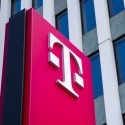
Also in today's EMEA regional roundup: Vodafone and Ericsson halve network energy consumption; zero-rated mobile tariffs come under EU scrutiny; Ireland slaps €225 million fine on WhatsApp.
Deutsche Telekom is launching what it says is the first mobile option for 5G networking in cars through a tie-up with Germany's BMW. The set-up involves the use of a "personal eSIM" which, says Deutsche Telekom, turns the vehicle – in this case the BMW iX – into another connected device, such as a smartwatch, even when the smartphone to which it is registered is not in the vehicle. The personal eSIM is integrated in addition to the vehicle eSIM installed as standard, and the technology in the vehicle enables both eSIMS to be fully active on 5G at the same time. Furthermore, the personal eSIM is directly linked to the customer's BMW ID and can be used, along with its connected functions, in any enabled vehicle, such as a rental BMW.
Vodafone UK reckons it halved its daily network energy consumption in a trial of Ericsson's recently introduced antenna-integrated radio offering (AIR 3227) in London. The operator is so impressed, it now plans to deploy 1,500 of the new radios across its network by April 2022. Ericsson and Vodafone UK first launched commercial 5G services in 2019 and since then have been collaborating on ways of reducing the environmental impact of site upgrades. (See The greenwashing of telecom.)
Ericsson has also been working with chipmaker Qualcomm and the pair have announced that they have successfully completed what they claim is the first over-the-air 5G New Radio (NR) call on CBRS (Citizen Broadband Radio Service) spectrum in a field trial. CBRS is a 150MHz-wide broadcast band of the 3.5GHz band (3550 MHz to 3700 MHz) in the US, and Ericsson and others believe it could enable a whole new range of industrial applications as well as supporting the proliferation of private networks for large companies.
The European Court of Justice has ruled that two "zero-rated" mobile streaming options available in Germany, "Vodafone Pass" and Telekom Deutschland's "Stream On," are incompatible with EU law. In its ruling, the ECJ said: "Such a commercial practice is contrary to the general obligation of equal treatment of traffic, without discrimination or interference, as required by the regulation on open internet access."
Ireland's Data Protection Commission has finally concluded its investigation into WhatsApp's data processing – and specifically its failure to comply with the EU's GDPR protocols – and imposed a fine of €225 million (US$266 million) on the Facebook-owned messaging service. The authority has also told WhatsApp to "bring its processing into compliance by taking a range of specified remedial actions." (See Eurobites: Facebook Backs Out of Ireland as GDPR Jeopardy Looms.)
UK-based AccelerComm says it has created a 5G O-RAN standards-compliant basestation accelerator based on Silicom's N5010 platform. The project, developed for a 5G network infrastructure vendor, combines technology from the two companies to – they claim – increase reliability while reducing latency and power consumption for the most critical components of the 5G physical layer.
Telefónica Tech has unveiled a blockchain-based certification service that allows any company to authenticate documents, transactions, projects, files or any type of digital content. The idea is that companies can generate digital evidence of authorship, ownership and integrity of the dynamic history of versions of any digital format (files, images, emails, etc.) with the same "probative value," as opposed to the classic digital signature that only offers these guarantees for a specific version of a PDF document.
— Paul Rainford, Assistant Editor, Europe, Light Reading
Read more about:
EuropeAbout the Author(s)
You May Also Like


.jpg?width=300&auto=webp&quality=80&disable=upscale)









